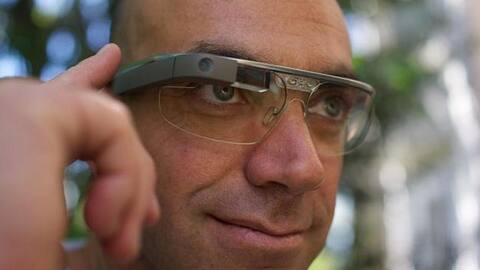Inspired by Google-Glass, Delhi boy invents device for hearing impaired
What's the story
At just 17, this Delhi boy is a genius. He has invented a low-tech device that would help the hearing impaired. Inspired by Google Glass, Madhav Lavakare's gadget called 'Transcribe' is priced at a whopping 96.5% lesser than the Google's device. His basic nature is to "solve problems, no matter what the obstacle is", but 'Transcribe' is a product of love. Here's his story.
Details
He literally was stalking Google Glass
When Google Glass was launched, Madhav fell in love with it, "not aesthetically, but in terms of the concept." At $1500 (over Rs. 1L), he felt the price was too high for anyone in India to afford it. That explains why it didn't take off here. Madhav, however, continued updating himself with the latest happenings about Google Glass. And then something clicked.
Process
Using cheap electronic parts and basic concepts of Physics
He thought of creating a device based on the technology that would help the hearing impaired. Madhav used cheap electronic parts and based it upon basic concepts of physics that we read in class-X, and voila! 'Transcribe' was born. All one does is to wear the glasses and the person on the other side who wants to communicate, talks over a smartphone.
Description
"The hardware is based on a cheap Arduino"
An app transcribes the speech to text, which is then sent to a chip attached to the glasses. The text is flashed on a transparent screen in front of the person "using careful optics to ensure image is enlarged and far in front of your eyes." "The hardware is based on a cheap Arduino (an open-source computer hardware and software company) microchip," he describes.
Prototypes
Using 'rudimentary Android application', Google's Speech API converts to text
The other parts of the glasses are a Bluetooth module and a small OLED screen. "I've developed a rudimentary Android application that utilizes Google's Speech API (application programming interfaces) to convert speech to text. The API supports over 132 languages as of now," he said. After developing two prototypes, he is working on the third now using CAD and 3D print for the case.
Challenges
Procuring raw materials was hard for Madhav
Procuring raw-materials, however, proved to be a daunting task for Madhav. Having grown up in Palo Alto, which is in Silicon Valley, the hub of cheap electronic parts, it was tough for him in Delhi. Left with no option, he had to get it imported, which took months to arrive. The absence of "dedicated maker spaces or labs" made matters worse.
Raw materials
Not finding acrylic sheets, he cut it out from CDs
He had to trawl for almost a week to find a man possessing electric plate cutters, to get acrylic sheets (raw material for the glasses) cut into pieces. Finally, a man in the Kotla Mubarakpur area had one but it damaged his sheets. "In the end, I had to do it myself, using a paper cutter and spending hours cutting away at the plastic."
Testing
Feedback was mostly positive; helped him improve
Despite the challenges he faced, his efforts paid off. Wherever he went, be it the National Association of the Deaf, NGOs like Suniye Support School for Hearing Impaired or other hearing schools, he received positive feedback. It helped him further improve his prototype. One of them was having captions come within the field of view to enable "focus on everything else in their surroundings."
Plans
Priced at Rs. 3,500, Madhav will take it up commercially
Talking about the price, Madhav said he had kept the price at Rs. 3,500, about Rs. 1,000 more than the manufacturing cost. When he tested it, people showed interest in his device and assured that they would buy it. This gave him the encouragement to think of commercializing his device. He's currently in talks with potential investors for seed funding to develop better prototypes.
Quote
Madhav plans to approach more hearing impaired people
"The next step is to scale up my operations. I aim to achieve this by working with more organizations that assist the deaf to test the device further and receive valuable feedback. I will then incorporate this feedback into many new prototype iterations," he said.
